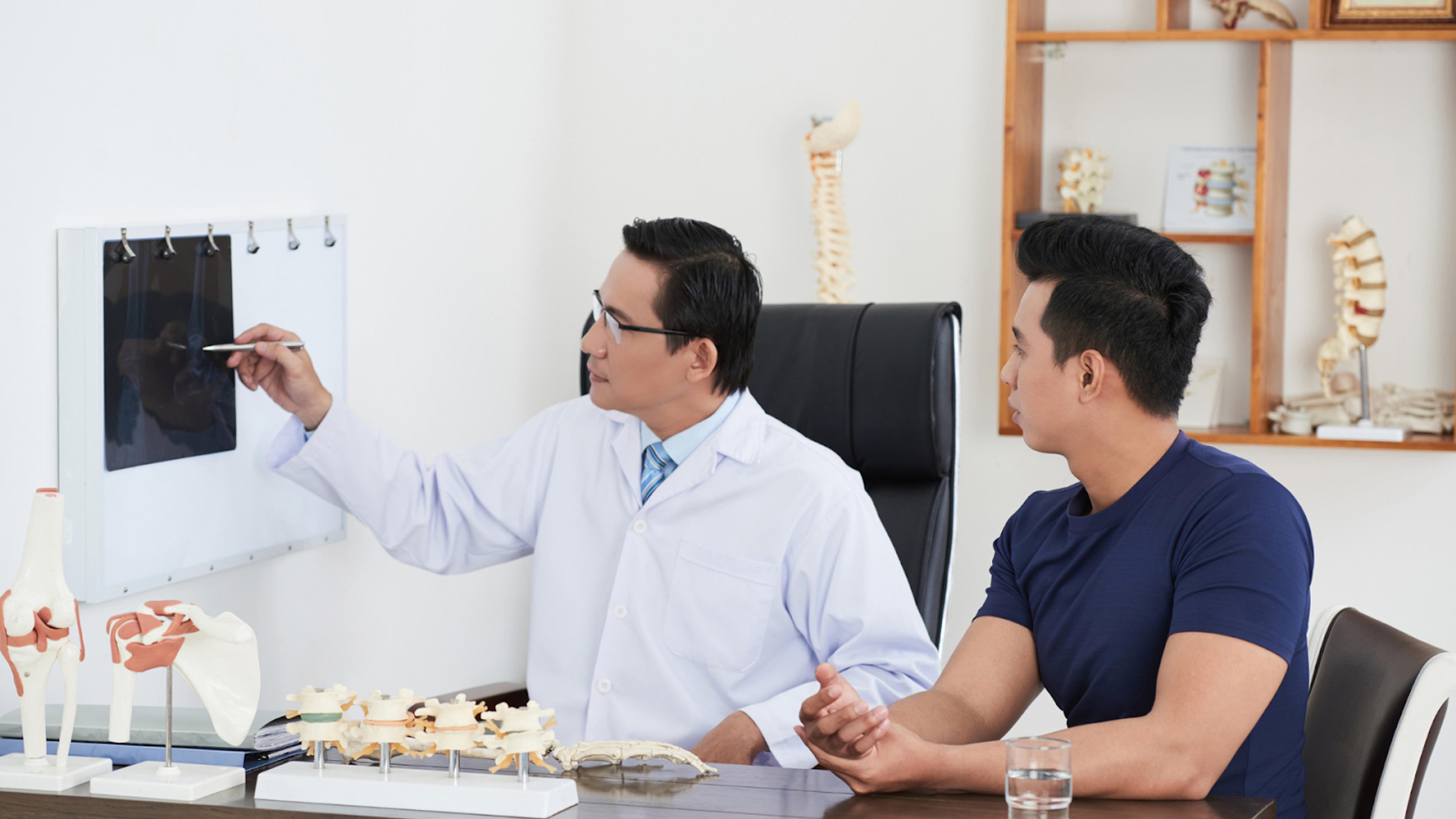Comprehensive List of Physician Assistant (PA) Programs in Michigan
Looking to pursue a career as a Physician Assistant in Michigan? Explore our comprehensive list of PA programs in the state, including details on admission requirements, curriculum, and accreditation.
Posted June 13, 2025

Join a free event
Learn from top coaches and industry experts in live, interactive sessions you can join for free.
Table of Contents
If you are interested in pursuing a career as a Physician Assistant (PA) in Michigan, you've come to the right place. In this comprehensive article, we will provide you with all the information you need to know about PA programs in Michigan, from an overview of PA education in the state to navigating the admissions process. Let's dive in!
Physician Assistant Programs in Michigan
Michigan is home to several esteemed PA programs that offer rigorous education and training to aspiring professionals. These programs provide a well-rounded curriculum that prepares students for the challenges and responsibilities they will encounter in their future careers as PAs. Here are three of the notable PA programs in Michigan:
1. University of Michigan-Flint
The PA program at the University of Michigan-Flint is renowned for its commitment to academic excellence and clinical practice. With a comprehensive curriculum and state-of-the-art facilities, students receive top-notch education and hands-on training.
The University of Michigan-Flint's PA program stands out for its strong emphasis on research and evidence-based practice. Students have the opportunity to engage in cutting-edge research projects, working alongside renowned faculty members who are experts in their respective fields. This exposure to research not only enhances students' critical thinking and analytical skills but also allows them to contribute to the advancement of medical knowledge.
The program's clinical rotations are diverse and extensive, providing students with exposure to a wide range of medical specialties. From primary care to emergency medicine, students have the opportunity to work alongside experienced healthcare professionals and gain valuable hands-on experience in various healthcare settings. This comprehensive clinical training prepares graduates to excel in their future roles as PAs, equipped with the necessary skills and knowledge to provide high-quality patient care.
2. Grand Valley State University
Grand Valley State University's PA program is committed to fostering a diverse and inclusive learning environment that welcomes students with a wide range of educational and health-related backgrounds. Regardless of their prior experiences, all students in the Physician Assistant Studies (PAS) program at GVSU have the opportunity to build upon their knowledge and skills to become highly competent physician assistants upon graduation.
The comprehensive curriculum at GVSU's PAS program is structured to provide students with a solid foundation in both didactic coursework and clinical training. Over four semesters, students engage in rigorous didactic coursework covering essential topics such as human anatomy, medical physiology, clinical medicine, and evidence-based medicine. This coursework, totaling 67 credits, equips students with the theoretical knowledge and practical skills necessary for clinical practice.
Following the didactic phase, students progress to three semesters of intensive clinical training, totaling 36 credits. During this phase, students embark on a series of core required rotations, including emergency medicine, family medicine, internal medicine, psychiatry/behavioral medicine, underserved medicine, general surgery, and women's health. Additionally, an integrated pediatric rotation is seamlessly incorporated into select core rotations, ensuring that students gain exposure to pediatric patient populations under the guidance of qualified preceptors.
3. Central Michigan University
CMU offers a dynamic PA program with a unique and comprehensive educational experience designed to prepare students for successful careers in healthcare. One distinguishing feature of their program is the mentorship experience provided to all first-year students. Through a structured mentorship program, students receive guidance and support from experienced faculty members, enabling them to develop clinical problem-solving skills and gain valuable insights into primary and rural health care.
CMU's program also emphasizes didactic learning experiences that lay a strong foundation for clinical practice. While specific courses are required prerequisites for enrollment, CMU do not offer advanced placement in the program, ensuring that all students receive a standardized and thorough education. Additionally, CMU's curriculum includes service-learning components, with students required to complete 40 service-learning hours during their education. Opportunities such as Mobile Health Central allow students to gain hands-on experience while providing valuable healthcare services to local communities.
The Central Michigan University's PA program recognizes the importance of interdisciplinary collaboration in healthcare. Their students participate in interdisciplinary professional education activities as part of their didactic learning experiences, preparing them to work effectively as part of a clinical and medical interdisciplinary team. With a focus on mentorship, didactic learning, service-learning, and interdisciplinary education, CMU's program equips students with the skills and knowledge needed to excel in the dynamic field of healthcare.
Overview of PA Education in Michigan
PA education in Michigan is designed to provide students with a comprehensive understanding of medical sciences, clinical skills, and professional development. Most programs follow a rigorous curriculum that includes didactic coursework, laboratory experiences, and clinical rotations in various healthcare settings.
The didactic phase of PA education covers a wide range of topics, including anatomy, physiology, pharmacology, medical ethics, and patient assessment. Students are required to attend lectures, participate in small group discussions, and engage in hands-on learning activities.
During the didactic phase, students delve into the intricacies of human anatomy, studying the structure and function of various body systems. They learn about the complex interplay between organs, tissues, and cells, gaining a deep appreciation for the remarkable intricacy of the human body. Through hands-on laboratory experiences, students have the opportunity to dissect cadavers, examine organs under microscopes, and practice clinical procedures on medical mannequins.
Pharmacology is another crucial component of the didactic phase. Students learn about different classes of drugs, their mechanisms of action, and their therapeutic uses. They explore the potential side effects and interactions of medications, developing a solid foundation in pharmacotherapy. Through case studies and simulations, students analyze patient scenarios and make evidence-based decisions regarding drug therapy.
Medical ethics and patient assessment are also emphasized during the didactic phase. Students engage in thought-provoking discussions about ethical dilemmas in healthcare, exploring topics such as patient autonomy, informed consent, and end-of-life care. They learn how to effectively communicate with patients, conduct comprehensive physical examinations, and interpret diagnostic tests.
After completing the didactic phase, students move on to the clinical phase, where they gain practical experience through rotations in different medical specialties. These rotations provide students with the opportunity to apply their knowledge in real-world settings, working under the supervision of experienced healthcare professionals.
During clinical rotations, students have the chance to work in a variety of healthcare settings, such as hospitals, clinics, and specialty practices. They rotate through different medical specialties, including internal medicine, surgery, pediatrics, obstetrics and gynecology, and psychiatry. This exposure to diverse medical fields allows students to develop a well-rounded skill set and gain insight into the various career paths available to them as future PAs.
Under the guidance of preceptors, students actively participate in patient care, taking histories, performing physical examinations, and assisting in medical procedures. They learn to collaborate with other healthcare professionals, such as physicians, nurses, and pharmacists, in order to provide comprehensive and coordinated patient care. Through these hands-on experiences, students develop clinical reasoning skills, enhance their diagnostic abilities, and refine their interpersonal communication skills.
Throughout the clinical phase, students also engage in ongoing professional development activities. They attend conferences, workshops, and seminars to stay updated on the latest advancements in healthcare and to network with other professionals in the field. They also participate in research projects, quality improvement initiatives, and community outreach programs, further enhancing their knowledge and skills.
PA education in Michigan is a rigorous and comprehensive program that prepares students for a rewarding career in healthcare. Through a combination of didactic coursework, laboratory experiences, and clinical rotations, students acquire the knowledge, skills, and professional attributes necessary to provide high-quality patient care as physician assistants.
3 Helpful Ways to Navigate Admissions
Gaining admission to a PA program in Michigan can be a competitive process, as these programs receive a large number of applications each year. Here are some tips to help you navigate the admissions process:
- Research Programs: Take the time to research different PA programs in Michigan and determine which ones align with your academic and career goals.
- Meet Prerequisites: Review the prerequisites for each program and ensure that you meet the academic requirements, such as completing prerequisite courses and obtaining relevant healthcare experience.
- Prepare a Strong Application: Put together a well-written personal statement that showcases your passion for the PA profession and highlights your unique qualifications. Additionally, secure strong letters of recommendation and prepare for interviews.
Training and Clinical Rotations
PA programs in Michigan provide students with comprehensive training that prepares them to work in diverse healthcare settings. Students gain hands-on experience through clinical rotations, where they have the opportunity to work with patients under the supervision of licensed healthcare professionals.
During these rotations, students rotate through various medical specialties, such as internal medicine, family medicine, pediatrics, surgery, and emergency medicine. This exposure allows students to develop a well-rounded skill set and gain insight into different areas of healthcare.
The clinical rotations offer students the opportunity to apply their knowledge and skills in real-world situations, building their confidence and competence as future PAs. These experiences also help students develop essential clinical reasoning and problem-solving skills.
State Licensing in Michigan
After completing a PA program in Michigan, graduates must obtain state licensing to practice as a PA in the state. The Michigan Board of Medicine oversees the licensing process and sets the standards for PA practice.
To obtain a PA license in Michigan, individuals must meet the following requirements:
- Graduate from an accredited PA program.
- Pass the Physician Assistant National Certifying Exam (PANCE), administered by the National Commission on Certification of Physician Assistants (NCCPA).
- Apply for state licensure through the Michigan Board of Medicine and fulfill any additional requirements or documentation requested.
- Maintain licensure by fulfilling continuing education requirements.
Once licensed, PAs in Michigan can practice autonomously or work under the supervision of a licensed physician, depending on their level of experience and area of specialization.
Pursuing a career as a Physician Assistant in Michigan requires dedication, hard work, and a commitment to lifelong learning. The PA programs in Michigan offer excellent education and training opportunities that will equip you with the knowledge and skills needed to thrive in this dynamic and rewarding profession. Research each program, meet the prerequisites, navigate the admissions process, and embark on a fulfilling journey towards becoming a PA in the great state of Michigan!
Ready to Take the Next Step Toward Becoming a PA in Michigan?
Pursuing a career as a Physician Assistant in Michigan isn’t just about meeting prerequisites or checking off rotations—it’s about finding the right program that aligns with your goals, values, and the kind of clinician you want to become. Whether you’re drawn to research-driven environments, underserved communities, or interdisciplinary collaboration, Michigan offers a range of programs to help you launch a meaningful healthcare career.
Feeling overwhelmed by your options or not sure how to make your application stand out? Working with a Leland PA admissions coach can help you clarify your path, strengthen your materials, and apply with confidence. Many of our students have earned spots at top PA programs in Michigan and beyond—and you can, too.
Explore Leland’s Physician Assistant Admissions Coaches here.
FAQs
Can I use online courses to fulfill prerequisite requirements for Michigan PA programs?
- Yes, many Michigan PA programs accept online courses to satisfy prerequisite requirements. For instance, Michigan State University's PA program allows online coursework for prerequisites. However, it's essential to verify with each specific program, as policies may vary.
Do Michigan PA programs accept Advanced Placement (AP) credits for prerequisites?
- Some programs may accept AP credits for certain prerequisites, such as English Composition and Statistics, provided the credits appear on your official undergraduate transcript. However, acceptance of AP credits varies by program, so it's crucial to consult each program's admissions guidelines.
Are there specific healthcare experience requirements for Michigan PA program applicants?
- Yes, many Michigan PA programs require applicants to have a certain number of healthcare experience hours. For example, Grand Valley State University requires a minimum of 500 hours of healthcare experience, emphasizing hands-on patient care activities. Acceptable roles include medical assistant, EMT, phlebotomist, and others involving direct patient interaction.
Do Michigan PA programs offer elective or international clinical rotations?
- Some programs, like Grand Valley State University, offer elective clinical rotations and have opportunities for international rotations. These experiences allow students to gain diverse clinical exposure and broaden their understanding of global healthcare practices.
What is the typical duration of PA programs in Michigan?
- The duration of PA programs in Michigan varies by institution. For instance, Grand Valley State University's PA program spans 28 months, while Western Michigan University's program is a continuous 24-month curriculum. It's important to review each program's structure to understand the time commitment involved.
Browse hundreds of expert coaches
Leland coaches have helped thousands of people achieve their goals. A dedicated mentor can make all the difference.
















